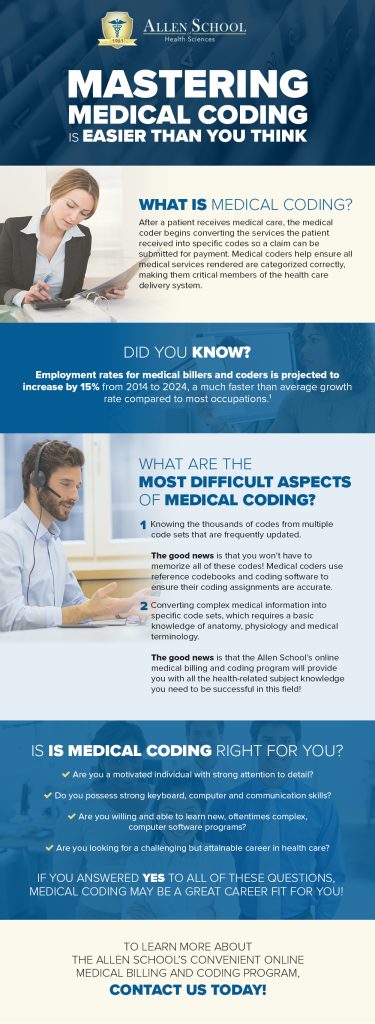In today’s fast-paced world, the field of medical billing has become increasingly important. But you might wonder, is medical billing difficult to learn? The answer to that question depends on various factors, such as your previous experience and the resources available to you. In this article, we will explore the intricacies of medical billing and provide you with valuable insights to help you better understand the learning process. By the end, you will have a clear understanding of what it takes to excel in this industry and whether it’s a suitable career path for you.
If you’re considering a career in medical billing or simply curious about how it all works, this article will offer you a comprehensive guide to the subject. We will delve into the fundamental concepts, discuss common challenges faced by practitioners, and provide tips on how to effectively navigate the complexities of medical billing. By the time you finish reading this article, you will have a solid foundation of knowledge to determine if medical billing is the right fit for you. So, let’s dive in and discover the fascinating world of medical billing together!

What is Medical Billing?
Medical billing is the process of submitting and following up on claims with health insurance companies to receive payment for services provided by healthcare professionals. It involves translating medical procedures, diagnoses, and treatments into numerical codes for insurance claims. Medical billing professionals play a crucial role in ensuring healthcare providers get reimbursed for their services.
Definition of Medical Billing
Medical billing is the administrative process of submitting and following up on claims with health insurance companies to receive payment for healthcare services provided. It involves translating medical procedures, diagnoses, and treatments into numerical codes for insurance claims.
Role of Medical Billers
Medical billers are responsible for submitting claims to health insurance companies accurately and efficiently. They must ensure that all necessary documentation and coding are in place to support the claims. They also follow up on submitted claims, handle denials and rejections, and negotiate with insurance companies to resolve any discrepancies. Medical billers act as a liaison between healthcare providers and insurance companies, working to ensure prompt payment for services rendered.
Importance of Medical Billing
Medical billing is essential in the healthcare industry as it ensures that healthcare providers receive payment for their services. Without proper medical billing procedures, healthcare providers may not receive reimbursement for the care they provide, leading to financial difficulties or even closure of their practice. Medical billing professionals play a crucial role in maintaining the financial stability of healthcare providers and ensuring the continuity of patient care.
Understanding the Complexity of Medical Billing
Medical billing is a complex process that requires a deep understanding of medical terminology, insurance policies and regulations, and thorough documentation and record-keeping.
Medical Terminology and Codes
Medical billers need to have a comprehensive knowledge of medical terminology and codes to accurately translate healthcare services into numerical codes for insurance claims. They must understand the intricate details of medical procedures, diagnoses, and treatments to ensure that claims are correctly coded and billed.
Insurance Policies and Regulations
Medical billing professionals need to stay updated with constantly changing insurance policies and regulations. They must be familiar with different insurance plans, coverage limitations, and reimbursement rates. They must also understand the specific guidelines and requirements set by each insurance company to ensure proper claim submission and payment.
Documentation and Record-Keeping
Proper documentation and record-keeping are crucial in medical billing. Medical billers need to maintain accurate patient records, insurance information, and billing history. They must ensure that all necessary documents, such as medical reports and invoices, are properly organized and accessible. Clear and concise documentation is vital in supporting the claims and resolving any disputes or audits.
Skills Required for Medical Billing
To excel in medical billing, certain skills and qualities are essential.
Knowledge of Anatomy and Physiology
A basic understanding of anatomy and physiology is important for medical billers. It helps them accurately identify and code medical procedures and diagnoses. Knowing the different parts of the human body and how they function aids in proper documentation and billing.
Understanding of Medical Billing Software
Medical billers must be proficient in using medical billing software. These software programs help streamline the billing process, track claims, generate reports, and handle various administrative tasks. Familiarity with different billing software and the ability to navigate them is crucial in efficiently managing billing operations.
Attention to Detail and Accuracy
Attention to detail is paramount in medical billing as even a minor error or omission can lead to claim denial or rejection. Medical billers need to meticulously review medical records, codes, and insurance information to ensure accuracy. They must have a keen eye for detail and the ability to spot inconsistencies or discrepancies.
Challenges Faced in Learning Medical Billing
Learning medical billing can be challenging due to several factors.
Vast Amount of Information
Medical billing involves learning an extensive amount of information, including medical terminology, coding systems, insurance policies, and regulations. The sheer volume of information can be overwhelming for beginners. However, with dedication and focused learning, the complexity can be gradually understood.
Frequent Updates in Regulations
Insurance policies and regulations are subject to frequent changes and updates. This requires medical billers to stay updated with the latest guidelines to ensure correct billing and claim submission. Keeping up with these changes can be challenging, but it is essential for successful medical billing.
Dealing with Denials and Rejections
Dealing with claim denials and rejections is a common challenge in medical billing. Medical billers need to have the skills to navigate through the appeals process, negotiate with insurance companies, and rectify any errors or discrepancies in the claims. It requires patience, persistence, and problem-solving abilities to resolve claim issues effectively.

Training and Education in Medical Billing
Obtaining proper training and education is crucial for a successful career in medical billing. Several options are available for learning medical billing.
Certification Programs
Many vocational schools, community colleges, and online institutions offer certification programs in medical billing. These programs provide comprehensive training on medical billing processes, coding systems, insurance policies, and claim submission. Obtaining a certification demonstrates proficiency in medical billing and enhances job prospects.
Online Courses
Online courses provide flexibility and convenience for individuals interested in learning medical billing. These courses cover various aspects of medical billing and can be completed at one’s own pace. Online platforms often provide interactive learning materials, quizzes, and assignments to enhance understanding.
Hands-on Experience and Internships
Gaining hands-on experience through internships or on-the-job training is invaluable in the field of medical billing. Working under the guidance of experienced professionals allows individuals to apply their theoretical knowledge in real-world scenarios. It provides a deeper understanding of the intricacies of medical billing and builds practical skills.
Tips for Learning Medical Billing Effectively
To learn medical billing effectively, consider the following tips.
Mastering Medical Terminology
Focus on acquiring a strong foundation in medical terminology. Familiarize yourself with the common medical terms, prefixes, suffixes, and their meanings. Understanding medical terminology is essential for accurately translating medical services into codes.
Staying Updated with Industry Changes
Stay abreast of industry changes, insurance policies, and coding updates. Subscribe to industry publications, attend webinars, and join professional organizations to stay informed. Continuous learning and staying updated are crucial for success in medical billing.
Practice Regularly and Seek Feedback
Consistent practice is vital in mastering medical billing. Engage in practical exercises, coding simulations, and case studies to reinforce your knowledge. Seek feedback from experienced professionals or mentors to identify areas for improvement and enhance your skills.

Career Opportunities in Medical Billing
Medical billing offers various career opportunities for individuals with the necessary knowledge and skills.
Medical Billing Specialist
A medical billing specialist focuses primarily on processing and managing insurance claims. They handle claim submissions, follow up on unpaid claims, investigate claim discrepancies, and negotiate with insurance companies. Medical billing specialists play a crucial role in ensuring healthcare providers receive timely reimbursement.
Medical Coding Specialist
Medical coding specialists are responsible for converting healthcare services into proper numerical codes. They assign codes based on medical reports, diagnoses, and treatments. Accurate coding is essential for insurance claims and reimbursement.
Revenue Cycle Analyst
A revenue cycle analyst examines the financial performance of healthcare organizations. They analyze billing data, identify areas for improvement, and develop strategies to optimize revenue collection. Revenue cycle analysts play a vital role in maximizing revenue and minimizing financial losses.
Job Outlook and Salary Potential
The field of medical billing is expected to grow steadily in the coming years. The increase in healthcare services and the complexity of insurance claims contribute to the growing demand for skilled medical billers.
Growing Demand for Medical Billers
As the healthcare industry continues to expand, the demand for medical billers remains high. Healthcare providers rely on skilled billers to ensure accurate billing, timely reimbursement, and financial stability. The increased focus on electronic health records and coding systems also contributes to the demand for medical billing professionals.
Competitive Salaries and Benefits
Medical billing offers competitive salaries and benefits. According to the U.S. Bureau of Labor Statistics, medical billers earn a median annual wage of around $41,000. The actual salary may vary based on factors such as experience, location, and job responsibilities.
Advancement Opportunities
Medical billers have opportunities for career advancement by specializing in specific areas such as coding, auditing, or revenue cycle management. With experience and additional certifications, they can progress into supervisory or management positions.

Conclusion
Medical billing may appear challenging to learn due to its complexities, but with dedication, proper training, and the right skill set, it can be mastered. Understanding medical terminology, staying updated with industry changes, and practicing regularly are key to success in this field. With the growing demand for skilled medical billers and attractive job opportunities, medical billing offers a promising career path for individuals interested in healthcare administration.
